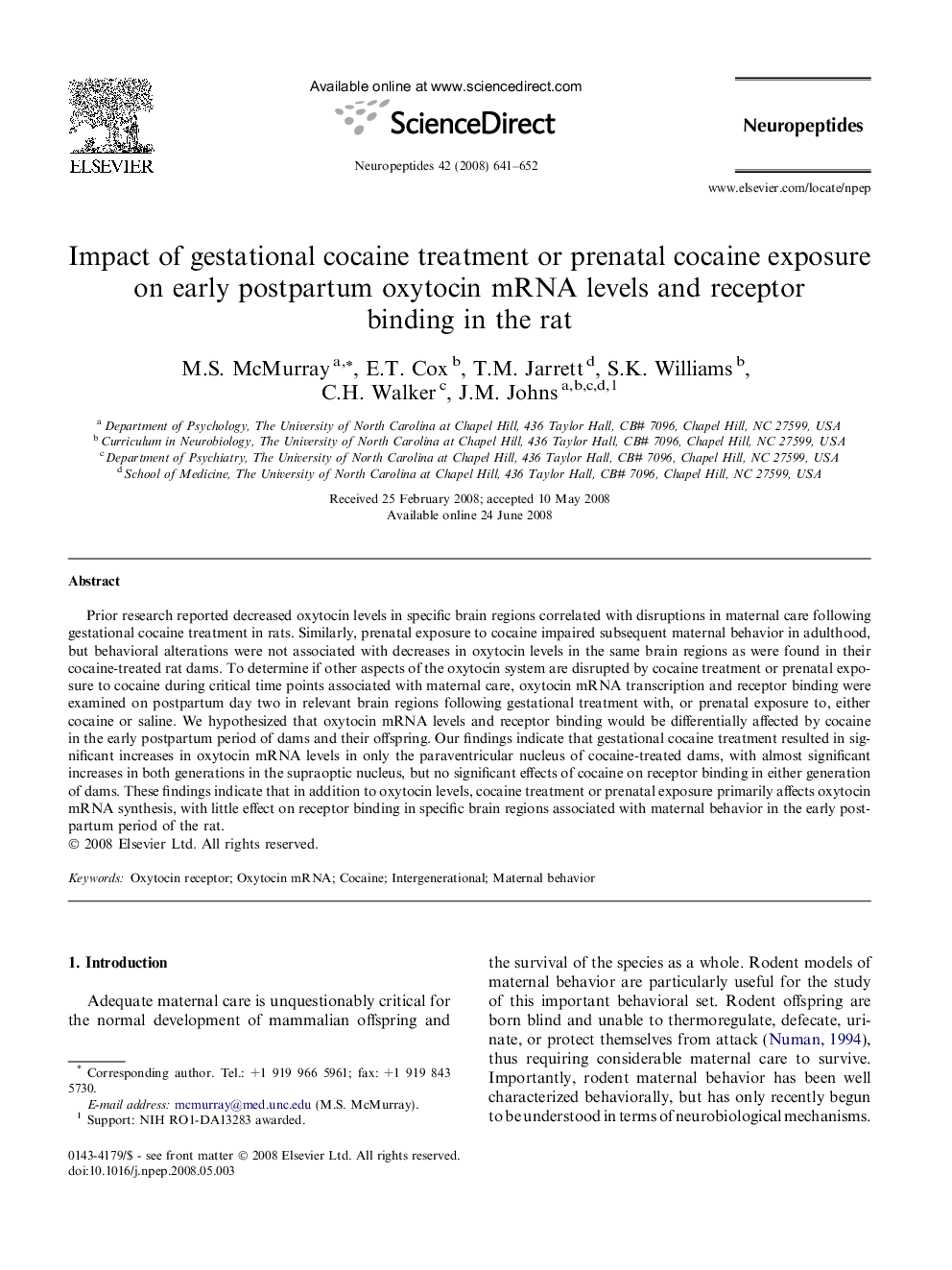| Article ID | Journal | Published Year | Pages | File Type |
|---|---|---|---|---|
| 2808614 | Neuropeptides | 2008 | 12 Pages |
Prior research reported decreased oxytocin levels in specific brain regions correlated with disruptions in maternal care following gestational cocaine treatment in rats. Similarly, prenatal exposure to cocaine impaired subsequent maternal behavior in adulthood, but behavioral alterations were not associated with decreases in oxytocin levels in the same brain regions as were found in their cocaine-treated rat dams. To determine if other aspects of the oxytocin system are disrupted by cocaine treatment or prenatal exposure to cocaine during critical time points associated with maternal care, oxytocin mRNA transcription and receptor binding were examined on postpartum day two in relevant brain regions following gestational treatment with, or prenatal exposure to, either cocaine or saline. We hypothesized that oxytocin mRNA levels and receptor binding would be differentially affected by cocaine in the early postpartum period of dams and their offspring. Our findings indicate that gestational cocaine treatment resulted in significant increases in oxytocin mRNA levels in only the paraventricular nucleus of cocaine-treated dams, with almost significant increases in both generations in the supraoptic nucleus, but no significant effects of cocaine on receptor binding in either generation of dams. These findings indicate that in addition to oxytocin levels, cocaine treatment or prenatal exposure primarily affects oxytocin mRNA synthesis, with little effect on receptor binding in specific brain regions associated with maternal behavior in the early postpartum period of the rat.
